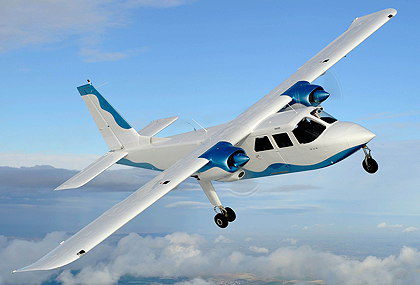The Project Fresson consortium brings together: Rolls-Royce, which will supply the power management system; the Denis Ferranti Group, which will supply the electric motors; Delta Motorsport, providing the battery packs; WMG (University of Warwick), which will perform battery testing; Cranfield Aerospace Solutions (CAeS), an aircraft integrator specialising in green commercial aviation; and the plane-maker, Britten-Norman. CAeS’ parent Cranfield University will research key technologies during the 30-month project.
The £9m grant is being provided through the ATI Programme – a partnership of the Aerospace Technology Institute (ATI), the Department for Business, Energy & Industry Strategy, and Innovate UK, which is aimed at maintaining and expanding the UK’s position in civil aerospace design and manufacturing.
“Project Fresson brings together a great partnership to develop innovative technology for a sustainable all-electric air transport solution for isolated islands,” explains Mark Scully, the ATI’s head of technology for advanced systems and propulsion. “The partners’ ultimate goal of delivering the first commercial passenger-carrying all-electric aircraft service in the UK will mark a significant breakthrough for all-electric propulsion.”
“The results of this exciting electric aircraft demonstrator project can be rapidly developed into an EASA/CAA certified modification kit, enabling the UK to lead the way with the first passenger-carrying sub-regional aircraft capable of all-electric flight,” adds CAeS CEO, Paul Hutton. “This is going to accelerate our green transport revolution.”

Project Fresson will develop a hybrid-electric propulsion system for the Britten-Norman Islander aircraft
Following the demonstrator project, CAeS plans to certify the modification through EASA. This will then be available in the global market, allowing operators of the 400-plus Islanders currently in service to convert their aircraft, cutting their operating costs and carbon footprint.
In future phases, the aim is to design and implement a similar modification for an existing 19-seat sub-regional aircraft, and to design and build a new 19-seat aircraft.

